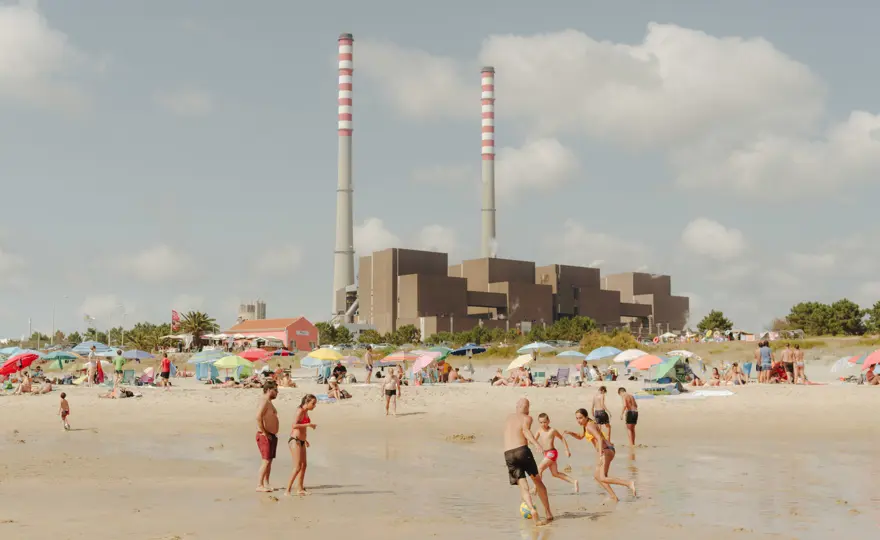
Anaïs Berthier
7th July 2023


It’s 2023 and all over Europe, people are living next to industrial complexes that are still polluting illegally and eroding their health – even claiming lives.
We tend to think of chemical exposure in relation to disasters – isolated incidents like the East Palestine train crash in the US, which pour noxious substances into the environment, potentially putting people at acute risk.
But the reality is more insidious and people are paying for it with their health, every day. Multiple dramatic cases of chronic industrial pollution are startling reminders that living next to industrial plants can still cause severe illness and kill, in 21st century Europe.
That’s why EU decision-makers need to make the Industrial Emissions Directive (IED) the most powerful tool to protect people that it possibly can be.
This law, which governs the emissions of over 50,000 installations, including steelworks, chemicals and plastics facilities, coal plants and factory farms all over Europe, is being overhauled.
Making it work for people in earnest starts with making sure victims of illegal pollution can be compensated for harm to their health.
Shocking examples of pollution and its impact on communities are rife throughout Europe. An estimated 10% or more of Europe’s cancer burden is suspected to relate to pollution exposure.
ArcelorMittal’s steel plant in Fos-sur-Mer, France, was just forced to close temporarily because of workers’ suspected exposure to toxic substances and dust. It is alleged that the plant is polluting at illegal levels, and that the incidence of cancer among people living locally is twice the national rate. ArcelorMittal considers the closure “unfounded and disproportionate”.
Elsewhere, there are ample examples of workers and local residents – particularly children – being impacted. A 5-year-old died in Taranto, Italy, from a brain tumour – metal and dust particles from the local steel plant (Italy’s largest) were found in his brain. Meanwhile, the local waters can’t be used to raise mussels because of iron dust levels.
It is estimated that EU premature deaths due to excessive levels of air pollution chart in the hundreds of thousands each year. It causes conditions from cancer to stunted neurological development.
Those living near antiquated coal plants in Bulgaria and Poland complain of stinging eyes and respiratory ill-health. Towns near coal complexes in Bulgaria have been blanketed with air pollution for years – coal regions in the country chart the EU’s highest levels of sulphur dioxide pollution. But the government gave the one of the local plants ongoing permission to pollute far above EU limits. Residents couldn’t fight for justice, so NGOs had to step in.
Unfortunately, even in cases where pollution happens illegally – due to company non-compliance or lax implementation or enforcement of EU law by public authorities – the legal set-up right now makes it very difficult for anyone to hold Member States or industries to account. And it is even more difficult for victims to get compensation for the damage to their health.
This is because the onus currently falls entirely on the victim to put together all the evidence of exactly how the pollution caused their health issue, and present it to the court.
The European Commission has acknowledged this injustice and proposed to include a new compensation right for victims of illegal pollution in the new IED.
Next week, members of the European Parliament will take their first collective vote on the inclusion of the compensation right in the IED.
With their vote MEPs need to ensure that if a facility is polluting beyond the limits allowed by the law, people suffering from health issues due to this illegal pollution are able to access the courts for compensation.
But there is a vital caveat: a compensation right only has meaning in practice if it has clear rules on evidence. If a victim has presented sufficient facts, the presumption must be that there is a causal link between the IED violation and the health damage – though the operator can still rebut this presumption. And in instances where evidence is held exclusively by the company, it needs to disclose it – otherwise, it is impossible for the court to make a fair decision.
This is a no-brainer. A compensation right with effective court guidelines already exists in competition and consumer laws – and it works for both parties involved. Contrary to industry claims, none of these rules have ever led to excessive litigation. And only illegal polluters are vulnerable – companies adhering to the rules have no reason to worry.
There is no justification for failing to apply it in the IED for victims of illegal pollution.
But resistance against this right remains high and disinformation campaigns are threatening to put paid to it once and for all. For a just, functional rights system in Europe, it is imperative this does not happen. An IED based on justice goes far beyond environmental action – it is about helping victims on the ground.
Members of the European Parliament are the representatives of people across Europe. They must stand firm and seize this major opportunity to bring back justice and finally offer protection for citizens across Europe.